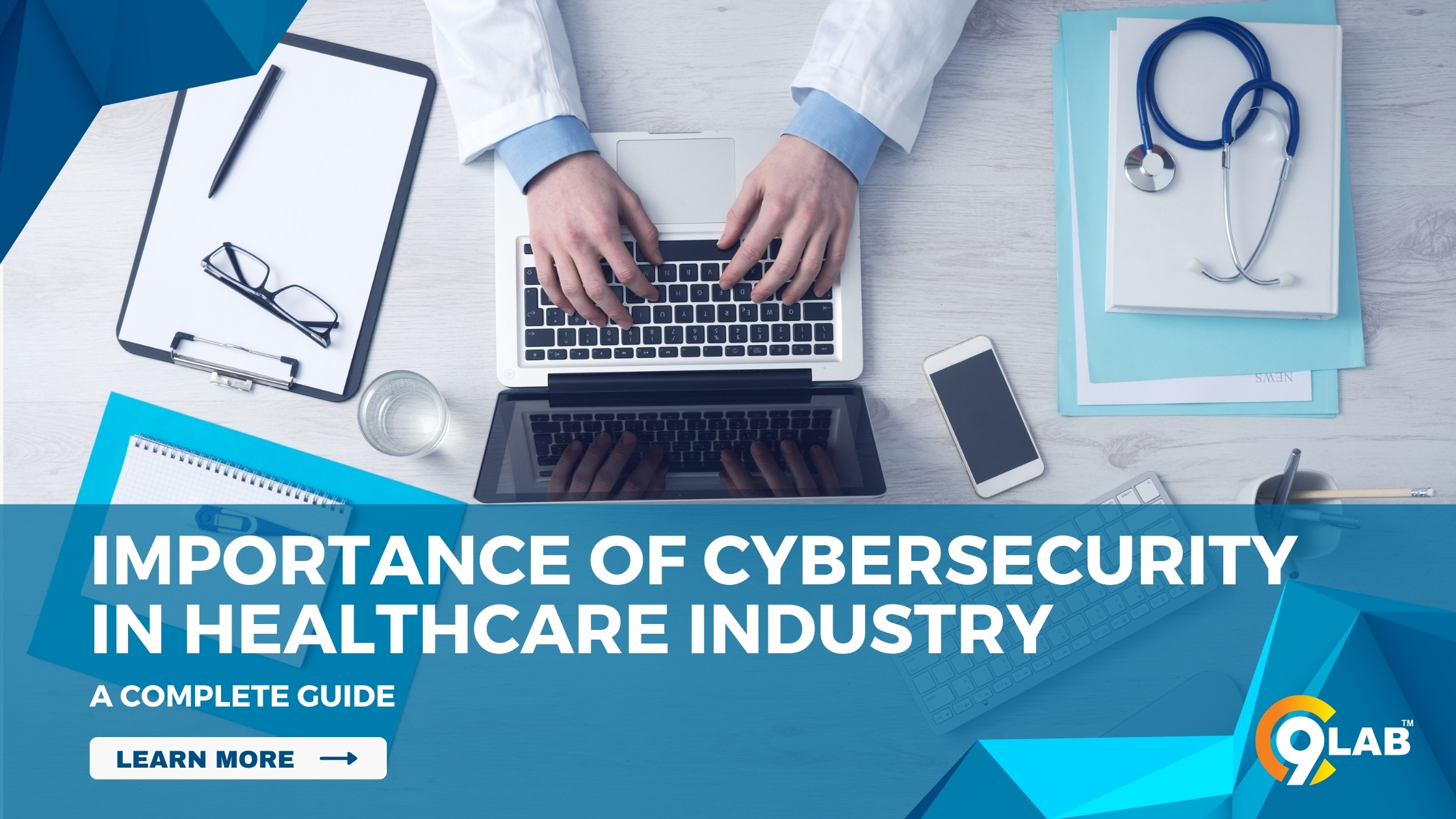
The Importance of Cybersecurity in the Healthcare Industry: A Complete Guide
Table of Contents
Introduction
In today’s digital age, the healthcare industry is rapidly evolving with the integration of advanced technologies. However, this evolution brings forth significant cybersecurity challenges. Protecting sensitive patient data and ensuring the integrity of healthcare systems has never been more critical. This blog delves into why cybersecurity services are essential in the medical sector, the types of cyberattacks healthcare organizations face, potential consequences of inadequate cybersecurity measures, and the cybersecurity solutions available to protect these institutions.
Why Cybersecurity Services are Essential in Healthcare
Protecting Patient Data
Healthcare organizations handle vast amounts of sensitive information, including personal, medical, and financial data. Cybersecurity services are crucial in safeguarding this data from unauthorized access, breaches, and theft. Ensuring data privacy not only complies with regulations such as HIPAA(Health Insurance Portability and Accountability Act) but also maintains patient trust.
Ensuring System Integrity
Healthcare providers rely heavily on digital systems for patient care, diagnostics, and treatment plans. A robust cybersecurity framework ensures these systems operate without disruption, preventing potentially life-threatening delays and errors in medical services.
Regulatory Compliance
Healthcare organizations must adhere to strict regulations regarding data protection and patient privacy. Cybersecurity services help these organizations stay compliant with laws such as HIPAA, GDPR, and other relevant standards, avoiding hefty fines and legal repercussions.
Mitigating Financial Losses
Cyberattacks can lead to significant financial losses due to system downtimes, data breaches, and regulatory fines. Implementing strong cybersecurity measures helps mitigate these risks, ensuring the financial stability of institutions.
Common Cyberattacks on Healthcare Organizations
Ransomware Attacks
Ransomware is a prevalent threat in the healthcare industry. Attackers encrypt critical data and demand a ransom for its release. This can cripple healthcare operations, delay treatments, and put patient lives at risk. Notable incidents, such as the WannaCry attack, have highlighted the devastating impact of ransomware on healthcare systems.
Phishing Attacks
Phishing attacks target healthcare employees to steal login credentials and access sensitive information. These attacks often come disguised as legitimate emails, making them challenging to detect. Training staff on recognizing phishing attempts is vital in preventing these breaches.
Insider Threats
Insider threats involve employees or contractors who intentionally or unintentionally compromise data security. Regular audits, access controls, and monitoring can help mitigate the risk of insider threats, ensuring that sensitive data remains protected.
DDoS Attacks
Distributed Denial of Service (DDoS) attacks overwhelm healthcare systems with traffic, rendering them unusable. These attacks can disrupt patient care, delay medical procedures, and compromise overall system integrity. Implementing robust network security measures can help defend against DDoS attacks.
Consequences of Inadequate Cybersecurity in Healthcare

Compromised Patient Safety
Inadequate cybersecurity can lead to the compromise of patient data, affecting diagnosis and treatment. Altered or stolen medical records can result in incorrect treatments, putting patient lives at risk.
Financial Losses
Cyberattacks can result in significant financial losses due to system downtimes, ransom payments, and regulatory fines. Healthcare organizations may also face lawsuits from affected patients, further straining their financial resources.
Reputational Damage
A breach of patient data can severely damage the reputation of a healthcare organization. Loss of trust can lead to a decline in patient numbers and overall business, making it challenging to recover from the incident.
Legal Consequences
Failure to protect patient data can result in severe legal consequences. Regulatory bodies impose hefty fines and sanctions on organizations that fail to comply with data protection laws, adding to the financial burden.
Cybersecurity Solutions in the Healthcare Industry
Comprehensive Employee Training
One of the most effective ways to prevent cyberattacks is through comprehensive employee training. Staff should be educated on recognizing phishing attempts, safeguarding login credentials, and following best practices for data security. Tools like C9Phish, a phishing mitigation platform, can simulate phishing attacks to train employees and enhance their awareness.
Advanced Encryption Methods
Implementing advanced encryption methods for data at rest and in transit ensures that even if data is intercepted, it cannot be read or used maliciously. Encryption is crucial for protecting sensitive patient information and maintaining data integrity.
Regular Security Audits and Risk Assessments
Conducting regular security audits and risk assessments helps identify vulnerabilities and potential threats within healthcare systems. Addressing these issues proactively can prevent security breaches. Additionally, employing brand protection services like QSafe ensures that any misuse of the healthcare brand is promptly identified and addressed, safeguarding the organization’s reputation.
Network and Website Monitoring
Continuous monitoring of networks and websites is essential for detecting and responding to cyber threats in real-time. Tools like C9Eye provide comprehensive network and website monitoring, ensuring that any anomalies or potential threats are quickly identified and mitigated before they cause significant damage.
Implementing Multi-Factor Authentication (MFA)
Multi-factor authentication (MFA) adds an extra layer of security by requiring users to provide two or more verification factors to access systems and data. This significantly reduces the risk of unauthorized access, even if login credentials are compromised.
Data Backup and Recovery Plans
Having robust data backup and recovery plans in place ensures that healthcare organizations can quickly restore data and resume operations in the event of a cyberattack. Regularly backing up data and testing recovery procedures are essential components of a comprehensive cybersecurity strategy.
FAQs
Why is cybersecurity important in healthcare?
Cybersecurity is crucial in healthcare to protect sensitive patient data, ensure the integrity of healthcare systems, comply with regulatory standards such as HIPAA, and prevent financial losses due to cyberattacks.
What are the common types of cyberattacks in healthcare?
Common cyberattacks in healthcare include ransomware attacks, phishing attacks, insider threats, and Distributed Denial of Service (DDoS) attacks.
How can healthcare organizations protect themselves from cyberattacks?
Healthcare organizations can protect themselves by implementing robust cybersecurity measures, such as regular audits, access controls, employee training, and advanced security technologies to detect and prevent cyber threats.
What are the consequences of a cyberattack on a healthcare organization?
The consequences of a cyberattack on a healthcare organization include compromised patient safety, financial losses, reputational damage, and legal repercussions.
How can patient data be protected in healthcare?
Patient data can be protected by using encryption, implementing strict access controls, conducting regular security audits, and ensuring compliance with data protection regulations.
Why are healthcare organizations targeted by cybercriminals?
Healthcare organizations are targeted by cybercriminals because they handle large volumes of sensitive data, which can be valuable for identity theft, fraud, and other malicious activities. Additionally, the critical nature of medical services makes them more likely to pay ransoms to restore operations quickly.
Conclusion
In conclusion, the healthcare industry must prioritize cybersecurity to protect patient data, ensure system integrity, and avoid the dire consequences of cyberattacks. By implementing comprehensive cybersecurity measures, including employee training, advanced encryption, and continuous monitoring, healthcare organizations can safeguard their operations, maintain patient trust, and comply with regulatory requirements. Products like C9Phish, QSafe, and C9Eye offer essential solutions to enhance cybersecurity and protect against various threats.
To learn about Why Firewall And Antivirus Fails To Provide Multi Layer Security
Follow Our Weekly Newsletter To Stay Updated In Cybersecurity Sphere- Cyber Briefs
